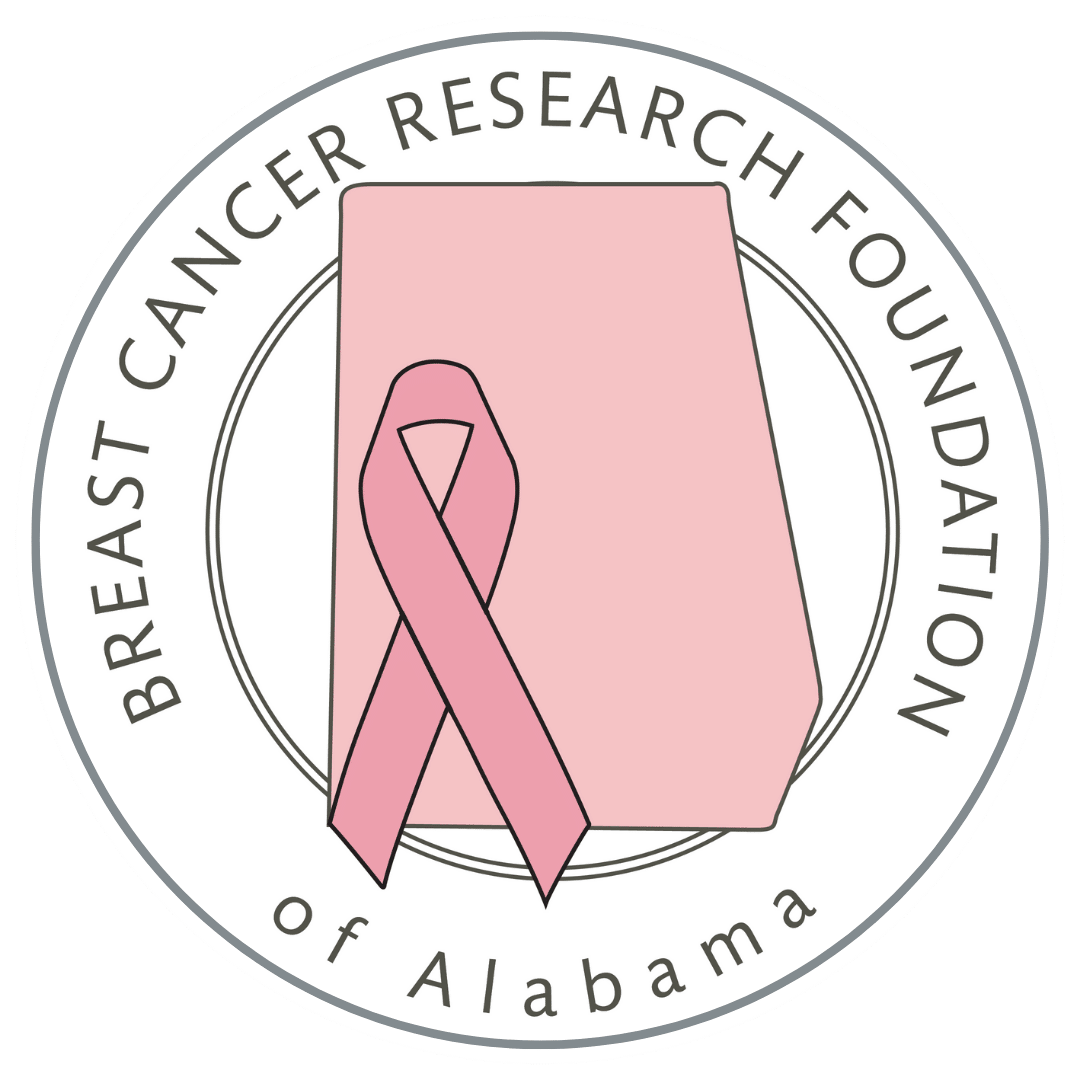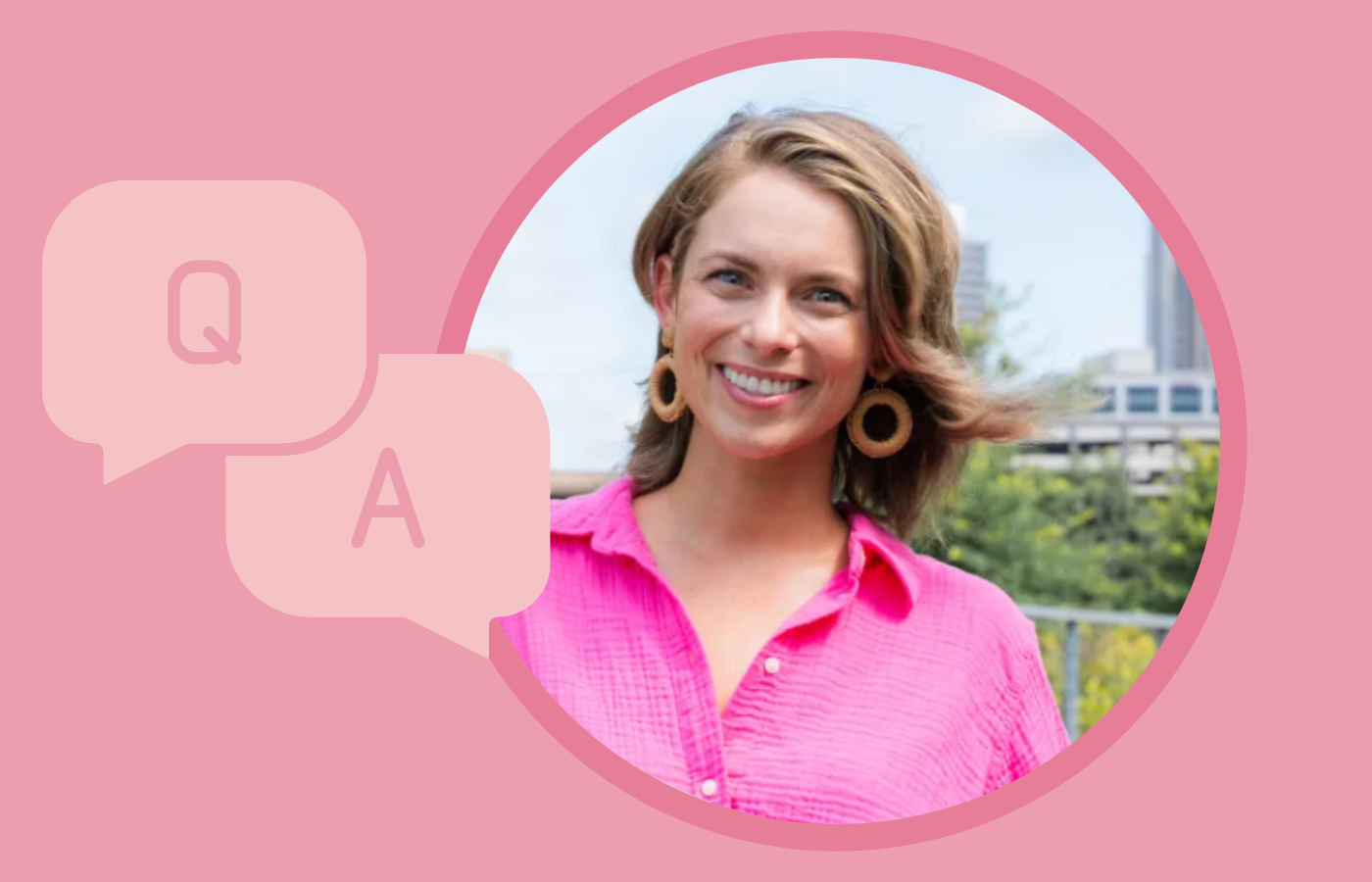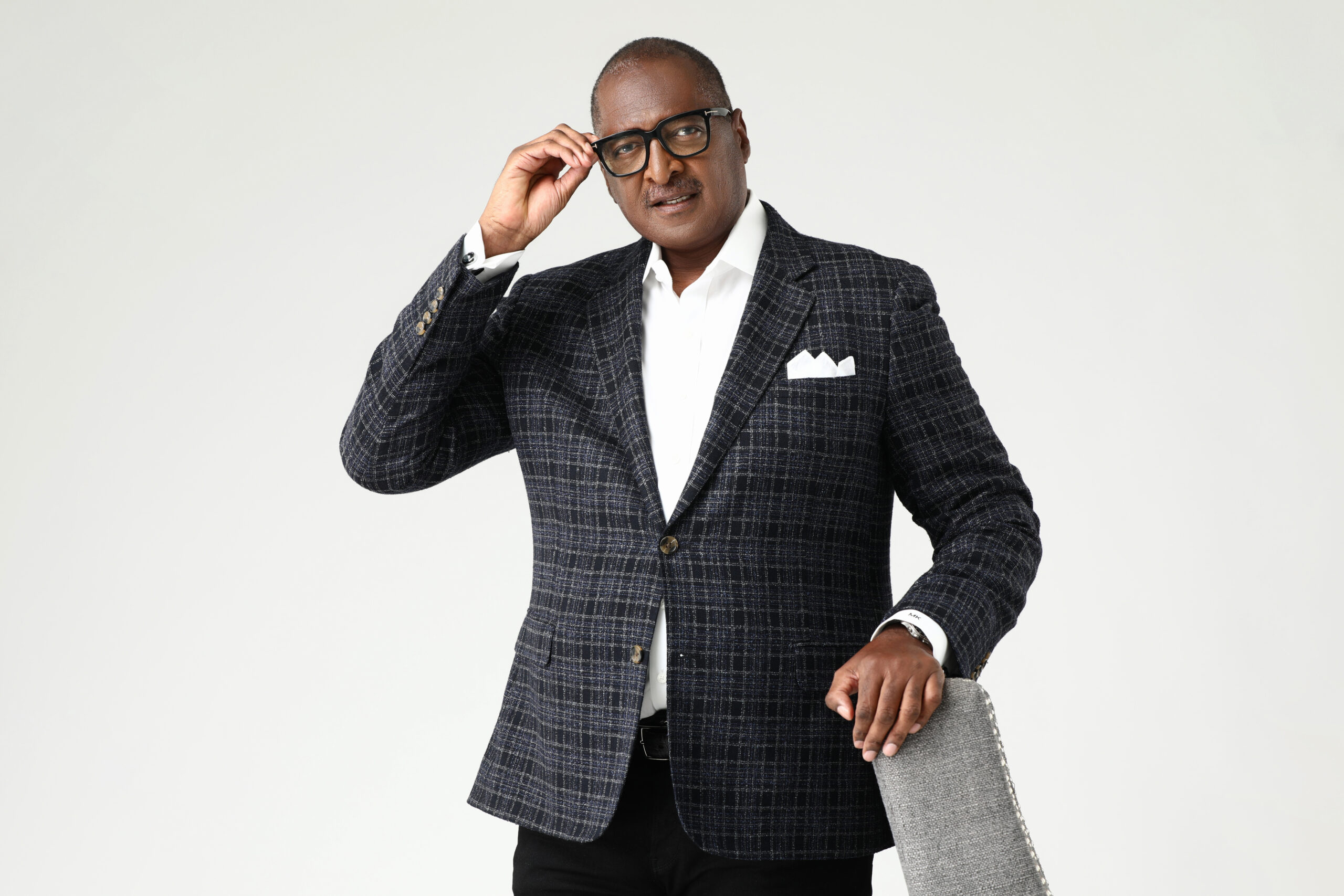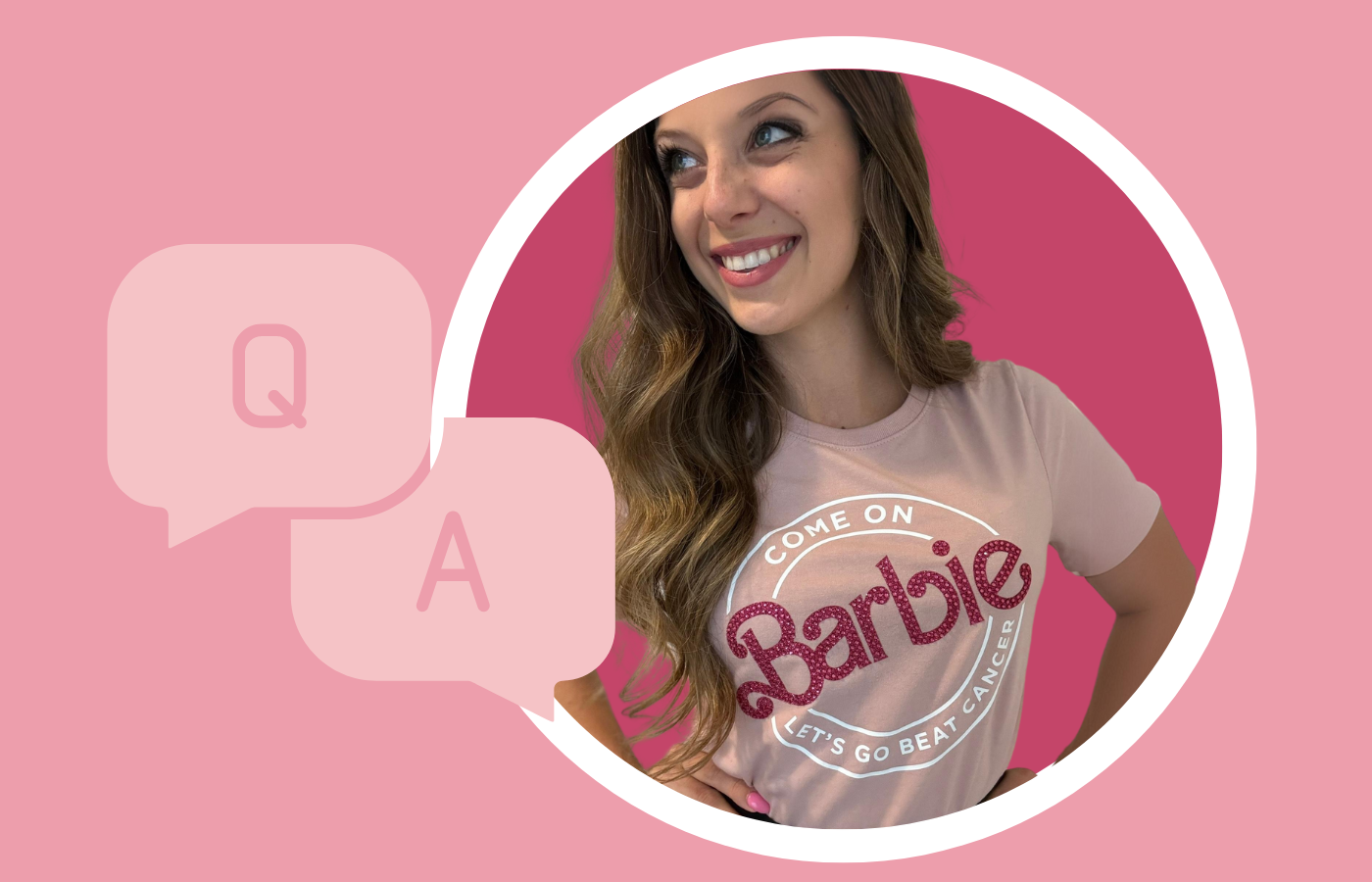At the age of 33, Rebecca Johnson was diagnosed with breast cancer. Rebecca shares her story of resilience and determination in fighting breast cancer. She has become an advocate for others and emphasizes the importance of seeking medical attention if something feels wrong and becoming one’s advocate. Read on as Rebecca shares her inspirational story.
BCRFA: Can you please share the details of when and how you received your breast cancer diagnosis?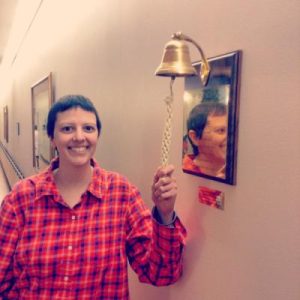
Rebecca Johnson: In 2009, I was 29 and I noticed something was happening with my right breast, but it was not something I recognized as cancer. There was a Sunday when I was volunteering and running a camera at my church when I felt a pain in my right breast. I went to look at it in the bathroom and noticed that it was bleeding from the nipple. At that moment, I thought it had something to do with me wearing a sports bra while operating the camera. I did notice the nipple discharge but I thought it might have something to do with the sports bra being too tight. Back then in 2009, I didn’t know that that would be a symptom or indicator of breast cancer. I had always been told to look for lumps and I never knew that a nipple discharge could help identify breast cancer.
It eventually started to scab (which turned out to be a tumor) and I would put a band-aid on it. I thought that perhaps it would eventually go away and get better. That was in 2009 and back then, I didn’t take going to the doctor seriously so, I put off getting it checked out for four years. It got to the point where I had a significant tumor (I didn’t realize that was what it was at the time), that had gotten so bad that I went to the ER in December 2013 and that was my first indication that I probably had breast cancer.
When I went to the ER, the doctors told me that it was breast cancer and they gave me information on hospital recommendations. I went to get a biopsy not too soon after the visit and on December 26, 2013, when I was 33, I got a call from the results of that biopsy that it was, indeed, breast cancer.
BCRFA: Were you surprised by the breast cancer diagnosis?
Rebecca Johnson: I wasn’t surprised because it confirmed what the ER doctors said. I am a person of faith. I am a Christian. So, the night of going to the ER, I remember going back to my car and praying about it because I thought “If this is what it is (breast cancer), I’m just going to pray about it.” I always think about one of the passages in the Bible, Matthew 6:34, where Jesus talks about ‘worrying about something is not going to add an hour to your life.’ I try not to worry and give it to God when I can’t do anything about it. If I did have cancer, the only things I could do would be to seek medical treatment and pray about it.
I have a friend who worked at Emory Hospital and so she connected me with the doctors at Winship Cancer Institute. I started to see and meet with them about treatments. I was diagnosed in December 2013 with Stage 3 HER2-positive breast cancer and started chemo treatments in January 2014.
BCRFA: What treatments did your doctors say you needed?
Rebecca Johnson: I went through seven rounds of chemo from January until May every three weeks, which included lab work and meeting with my oncologist. After that period of chemo was over, I had a little bit of a break and then, I had mastectomy surgery on my right breast that had the tumor on it. I was in recovery from that for four weeks. They said that some people typically do a double mastectomy, but I wanted to take care of the cancer first and then see how my life was going to change after that, so I did the one mastectomy in the summer. Following surgery, I had thirty sessions of radiation – five days a week for six weeks.
The chemo visibly shrank the tumor, which was very positive for me. I could see that it was working and making a difference. They had told me that there was a 50/50 chance that the chemo would take it all so I liked that I could see that there was a difference and it was improving.
Even with a breast prosthesis, I felt unbalanced and decided to go through another mastectomy. I was running 5k races at the time and it was hard to do all of that. Eventually, I decided to have a double mastectomy, reducing my chances of getting breast cancer again to 5%. Consequently, I no longer need mammograms.
BCRFA: How did you feel about telling your family of your diagnosis? 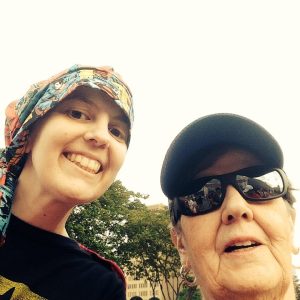
Rebecca Johnson: That was hard because when I was in college, my mom had breast cancer, but genetic testing revealed that my breast cancer wasn’t connected to hers. We suspect it was due to a medication some women were taking in the early 2000s, as my mom and her cousin both had breast cancer and were taking that same medication.
At the time, I was living in Georgia while my mom and brother were in Birmingham. It was especially difficult to tell my mom because I didn’t want to bring that all back up for her. After initially going to the doctor by myself, I realized I couldn’t keep chemo from them because I knew I needed help.
My mom offered reassurance by telling me ‘This is going to be a chapter of your life and then it’s going to be over.’ She had moved on from it herself and hadn’t had any cancer resurgence. When I look back on that year and a half of cancer treatment, that’s just one section of my life. She set the tone for how I looked at it. When I shared the news with my research-oriented brother, he tried to learn about my medications and treatments to better support me.
They were both very helpful in going to the Winship Cancer appointments and with me. I believe that family support is important.
BCRFA: How did you feel about your self-worth while losing your hair, going through chemo, and working?
Rebecca Johnson: It was tough because I lived by myself. My friends would come over on the weekends and help me out with some things and my family would come up for infusions every three weeks. I worked all through chemo and for me, I had a good situation because I told my coworkers and my supervisor, and they allowed me to restructure my schedule so I could work ten hours a day so I could have a day off to go to the infusions. They were very flexible with me, which made it easier.
Before cold caps were an option, the doctors suggested that I should go through the process of losing my hair in stages, starting with a buzzcut. Seeing my hair fall out was unsettling, but it was less traumatic to have a buzzcut and then lose the hair from that.
My aunt has been making cancer caps for patients for some time. When I told her about my situation, she sent me a bunch of caps that she had made. I found that I preferred wearing these caps over a wig. During my treatment in the winter months, the caps were helpful as they kept my bald head warm and made me feel more confident like I still had hair.
I went to work, and church, prayed a lot, and studied Christian Apologetics. I focused on learning instead of my situation. My friends sent care packages, and I joined the YMCA exercise program called Coach Approach at Winship Cancer Institute, for cancer patients. The routine helped me combat fatigue and regain some control over my circumstances. It was empowering to know I was taking steps to help myself physically and mentally.
BCRFA: How did you feel during treatments?
Rebecca Johnson: For me, it was emotionally taxing because during the first week of the chemo process, it made me feel terrible and I started to notice new things happening with my body. I had side effects during the first week of each infusion that would repeat each cycle. For Example, something would happen to my tongue that would make it hard to eat sandwiches and bread. Those changes made me very emotional during the first week of each treatment. During the second week of treatment, I would cry a lot. By the third week, I would start to feel a little more normal, but then I would have to go back and do it all again for the next infusion. I had a lot of emotional moments, but I also felt that a lot of people (including my family, friends, and doctors) were on my team.
BCRFA: Did you have any conversations with your doctors about fertility options?
Rebecca Johnson: Before I started chemo, I had a conversation with doctors about whether I wanted to preserve my eggs. I made the decision not to freeze my eggs because I didn’t foresee myself getting married or having children. I was surprised at how emotional that was for me because I thought about how there’d be no one to pass my legacy on. I was glad that they brought it up and gave me the option.
BCRFA: What’s one thing you wish you knew before starting treatment?
Rebecca Johnson: I had a lot of questions about nutrition. When I went to my first appointment with my oncologist, my question was ‘Why did I get breast cancer?’ They gave me a pie chart of why people typically get breast cancer and a really big portion of it said, “Other”. My doctors couldn’t give me a reason.
My suspicion was because of the lifestyle I was living. I did not eat well, I exercised only occasionally, and I feel that my food choices sort of played into things. When started chemo treatment, the nutritionist gave me a booklet of suggested things to eat. I started thinking, ‘Are there things that I shouldn’t be eating?’ I had a lot of nutrition questions which ultimately led me to make different and better food choices. I started eating organically, reading labels, and cooking.
BCRFA: What was your biggest discovery or revelation after you were diagnosed?
Rebecca Johnson: I started to learn about young breast cancer patients. That was not talked about, but I started seeing and hearing more about it once I started going through treatment.
BCRFA: How did you feel when they said there was no more cancer? 
Rebecca Johnson: That came through a follow-up appointment after my surgery. My surgical oncologist gave me a pathology report and told me that they had gotten all the cancer. After I got the good report, I went out to celebrate. I do remember having a feeling of ‘Of course, all the cancer is gone’, because I could visually see the difference. It wasn’t until later that I realized that this wasn’t always the case. Not everybody who goes through chemo has successful results like that. It made me feel good that everything I had been going through was worth it.
BCRFA: Once you were cancer-free, did you go back to the doctor? What was the timeline like?
Rebecca Johnson: I went to radiation oncology follow-ups for about six months. I participated in a study conducted by radiation oncology to track my progress throughout the entirety of my treatment. I still follow up with them to fill out their surveys. With the oncology surgeon, I would see him every six months. I felt good about going to those appointments because I felt taken care of.
BCRFA: What advice would you give to younger people about early detection and advocating for themselves?
Rebecca Johnson: Go to the doctor. Get check-ups. Get annuals. Make sure you are going to the doctor. Any time you see something wrong with your body; if something feels off or not normal or right, go to the doctor immediately. Don’t wait around or put it off. Don’t self-diagnose. Go to the doctor. It’s better to get information even if it’s bad news. Ask every question that you don’t have the answer to and try to learn as much as you can. Try to document everything that the doctor tells you so you can go back and listen to it.
One of the things I learned early on when I would go to appointments by myself was to record, with permission, my conversations with the doctor. This way, I could go back and listen to that conversation and know exactly what the doctor told me.
BCRFA: What advice would you offer to women who have recently received a breast cancer diagnosis?
Rebecca Johnson: I would pass on my mom’s advice. This may be just a chapter in your life. I would advise them to focus on the things they can control like food, exercise, maintaining a positive outlook, which I know is hard, and surrounding yourself with good, optimistic people who care about you. Even if you are in a bad situation, you can mentally make it something that can be positive. I know it’s difficult while you are going through it, but those are things that helped me.
BCRFA: How are you today?
Rebecca Johnson: My situation has changed. I no longer live in Georgia. In 2019, I moved back to Alabama. I’m around my family a lot which is great. Instead of only seeing them once a month, I get to see my mom every day and my brother one to two times a week. I have a fun job and I love being around my family and being able to see some of my friends more. Emotionally, I’m in a much better place because I surround myself with family. I am focusing on my health and exercising because not doing that could potentially lead to cancer. I am getting back into the habit of being more active. I am reapplying things I learned from my cancer treatment. I am in a really good place and haven’t had any health issues!
I count myself very blessed and try not to complain because, after cancer, I realized that I am very fortunate to have more time. Even if I get stressed out or something agitates me, I try to be grateful that I have been given more time.
I was previously going to survivorship appointments at Winship Cancer Institute and UAB. Once a year, I would meet with a medical professional who would give me a checkup and allow me to ask any questions. It’s nice to be able to follow up with someone and not feel forgotten.
BCRFA: Being 10 years cancer-free, have you experienced any side effects from your treatments?
Rebecca Johnson: Due to chemo, I don’t have much in the way of eyebrows anymore and have battled toe fungus. Some people aren’t aware that side effects can linger after treatment.
Thank you, Rebecca!
